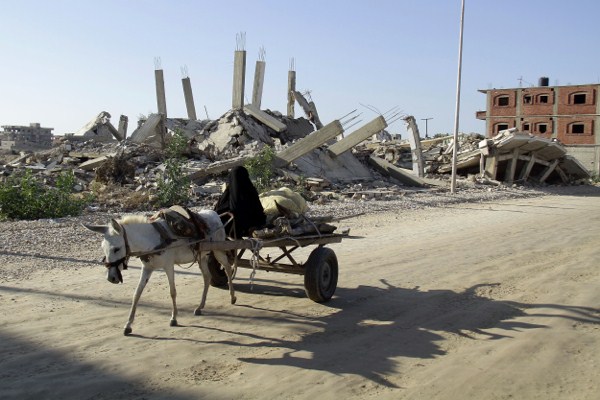In the months before former Egyptian President Mohamed Morsi was ousted by the military in the summer of 2013, Cairo was full of rumors. That wasn’t particularly new; Egyptian politics have always thrived on rumor. But the latest in a string of anti-Morsi hearsay at that time, which grew louder as the summer neared, went something like this: To appease his Palestinian brethren in Hamas, Morsi planned to give the group—an offshoot of the Muslim Brotherhood—a foothold in the Sinai Peninsula. Egyptian prosecutors went even further, after Morsi was in military custody later that year, accusing him of plotting both with Hezbollah, the Lebanese Shiite group, and with Hamas “to declare an Islamic emirate in Sinai.”
President Abdel Fattah el-Sissi swept to power on that wave of anti-Brotherhood sentiment, pledging to steer Egypt away from mounting political, economic and security threats—real and imagined. In the Sinai, the threat of jihadi militancy is dire and growing, but the government and state media, obsessed with crushing the Brotherhood, often distort its nature and conflate all militants with Hamas. That has allowed el-Sissi to frame Sinai security policy—whether counterterrorism against jihadi groups like Ansar Bait al-Maqdis, which in November pledged its allegiance to the so-called Islamic State, or border measures with Gaza—as one and the same. And it accounts for the stunning news from Egypt last week, when authorities announced plans to completely bulldoze the city of Rafah bordering the Gaza Strip.
Egypt’s military has been razing buildings in Rafah closest to the Gaza border for months to establish a “security zone,” following a two-stage militant attack in northern Sinai that killed 31 soldiers in October. As Haaretz reported, “the second phase involves destroying everything standing across an additional 500 meters from the border area, on top of the 500 meters already cleared several months ago. Some 1,220 homes and structures housing 2,044 families will be demolished, after nearly 800 homes and buildings were demolished in the first phase.”

